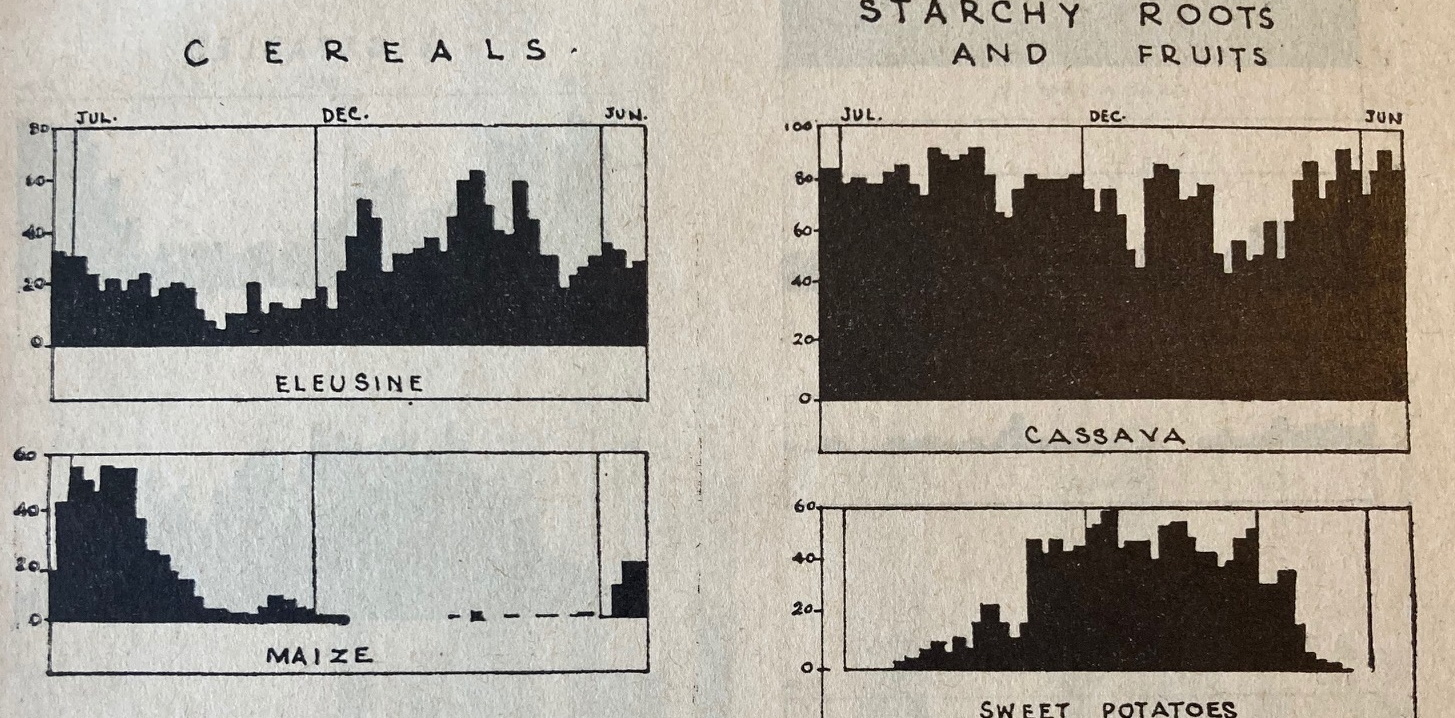A Dietary Survey among the Zande of the South-Western Sudan, by G. M. Culwick, With a clinical note by P. H. Abbott, Sudan Medical Service. Agricultural Publications Committee, Ministry of Agriculture, Sudan Government (Khartoum, 1950)
Download the book in four parts here: Part 1, Part 2, Part 3, Part 4
Geraldine Mary Culwick (née Sheppard) served in the Sudan Political Service (SPS) as a Nutrition Investigator and Social Research Officer from 1947 to 1953(?), first in Yambio and then in Gezira. Culwick's Dietary Survey among the Zande was undertaken, partly, to provide some information on the nutritional repurcussions of people being resettled in the course of sleeping sickness campaigns or being made to grow cotton in connection to the Zande Development Scheme. The survey team was based in Li Yubu, a medical station that grew out of a sleeping sickness settlement. The team worked for about a year, begining in June 1947, and consisted of Culwick, eight recorders, and a clerk-interpreter.
The book contains much useful information about daily life, labor, and diets. It also contains useful tables of Zande food and medicinal plants and notes on the production, storage, and use of food plants.
An Oxford-trained anthropologist, Culwick had read about the Zande prior to her arrival. "On first arrival I was apprehensive lest a community so dominated by oracles, witchcraft and fear of injury by supernatural means would find my interference in matters of food intolerably alarming, and would accordingly be unco-operative even if they did not actually close their doors against me." These fears turned out to be unfounded, she writes, "though a series of comic rumours about my intentions went round" (17).
Culwick related some of these comic rumours in "Some Problems of Social Survey in the Sudan" (Sudan Notes and Records 35, no. 1, 1954, 110-131). Residents of the Tambura sub-District initially assumed that she was poking around for prohibited plantations of cannabis, perhaps, or alcohol stills. After the survey had made a few rounds it became evident that the researchers were, indeed, interested in food. Other rumours circulated: "It was 1947, and some people in the station had been reading about rationing in England. "Ha!" said they, "We have it. She's come to find out what we've got and then those people in Yambio will force us to sell it for her hungry brothers in England" (112). Other rumours, based on a perfectly sensible assessment of the colonial situation, wondered whether the survey team might have been looking for "the best places" for the resettlement of hungry English. All the careful work of weighing crops and measuring people's bodies and taking blood samples prompted one woman to speculate that the survey might indicate a plan to fatten up Zande people to feed them to hungry English.
